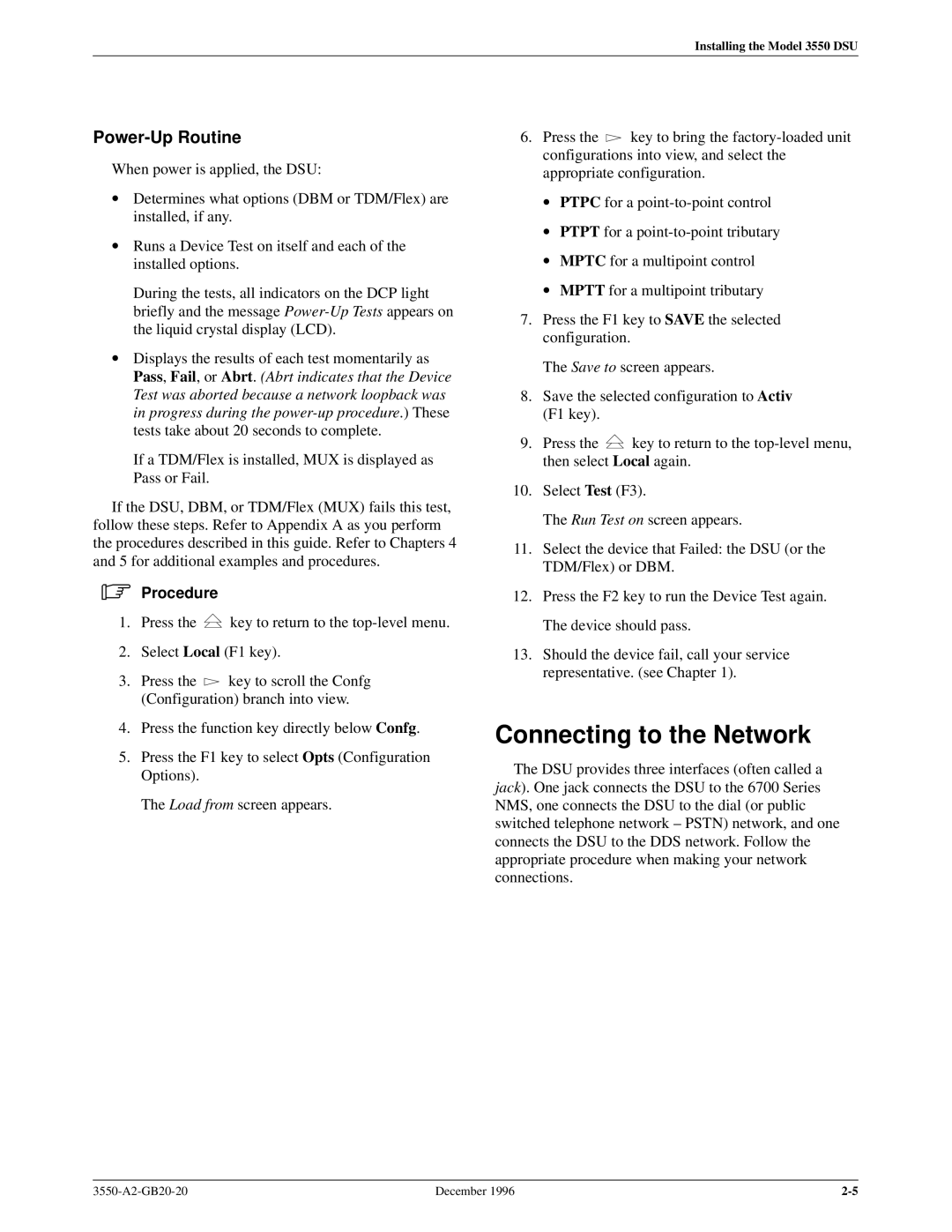
Installing the Model 3550 DSU
Power-Up Routine
When power is applied, the DSU:
•Determines what options (DBM or TDM/Flex) are installed, if any.
•Runs a Device Test on itself and each of the installed options.
During the tests, all indicators on the DCP light briefly and the message
•Displays the results of each test momentarily as Pass, Fail, or Abrt. (Abrt indicates that the Device Test was aborted because a network loopback was in progress during the
If a TDM/Flex is installed, MUX is displayed as Pass or Fail.
If the DSU, DBM, or TDM/Flex (MUX) fails this test, follow these steps. Refer to Appendix A as you perform the procedures described in this guide. Refer to Chapters 4 and 5 for additional examples and procedures.
.Procedure
1.Press the ![]() key to return to the
key to return to the
2.Select Local (F1 key).
3.Press the ![]() key to scroll the Confg (Configuration) branch into view.
key to scroll the Confg (Configuration) branch into view.
4.Press the function key directly below Confg.
5.Press the F1 key to select Opts (Configuration Options).
The Load from screen appears.
6.Press the ![]() key to bring the
key to bring the
•PTPC for a
•PTPT for a
•MPTC for a multipoint control
•MPTT for a multipoint tributary
7.Press the F1 key to SAVE the selected configuration.
The Save to screen appears.
8.Save the selected configuration to Activ (F1 key).
9.Press the ![]() key to return to the
key to return to the
10.Select Test (F3).
The Run Test on screen appears.
11.Select the device that Failed: the DSU (or the TDM/Flex) or DBM.
12.Press the F2 key to run the Device Test again. The device should pass.
13.Should the device fail, call your service representative. (see Chapter 1).
Connecting to the Network
The DSU provides three interfaces (often called a jack). One jack connects the DSU to the 6700 Series NMS, one connects the DSU to the dial (or public switched telephone network ± PSTN) network, and one connects the DSU to the DDS network. Follow the appropriate procedure when making your network connections.
December 1996 |
